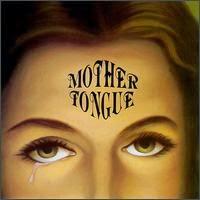
Image Courtesy: http://canadianimmigrant.ca/
Recently, in Facebook everyone was discussing their favorite books and tagging others to do the same. After the ice bucket challenge, probably, this was the most viral post my Facebook timeline has seen. While it delighted me that most of my FB friends, who posted about their list of top 10 favorite books and even tagged me, were exceptionally well-read (Why, some even quoted Samuel Richardson or James Joyce), it saddened me to no end that none of them could think of any book written in their mother tongue.Now, most of my favorite writers were born Bengali and they wrote in their mother tongue. They created a treasure trove that no one today searches for. I wonder if today anyone reads Tagore? Or Ray? Even Sunil Ganguly? I doubt. Forget reading. The other day a grown up woman in her early twenties maybe, asked me the meaning of the Bengali word, ‘Nirmom’. To my non-Bengali friends, it is a very common word that means cruel or heartless! She defended herself (or was it gloating?) that since she studied in an English Medium School, her Bengali was rusty! It’s depressing, the way Indian Languages are dying a slow death!
Indeed, this seems to be the trend now. We read only books written in English. Even Hindi-fied English books are infinitely better than books written in Hindi. It’s hip and cool not to be able to speak your mother tongue. Parents speak in English to their children. When I was living in Chennai, I saw only people conversing in English, in shopping malls, cafes, restaurants and theatres. I am sure it’s the same across India in all cities. If you don’t speak in English, you are automatically looked down upon. The mother tongue identifies a lesser individual now. No one studies these languages anymore! We are busy correcting the grammar of this borrowed language so much that we are forgetting the basics of our own! Soon Mother Tongue will mean, a language that my mother used to speak, of which I know nothing of.
It scares me. My mother tongue is not only a tool of communication but a repository of culture, of our history, our traditions, and our folklore.
I have heard Indians argue that English is an Indian language because more people in India speak English than in the other countries where English is the native language. True, in a purely numeric point of view. Yet most of us only speak a “dialect” of it. It’s but a mutant, not the Standard English! But we are so eager to be included in the list of English speaking nations that in our hurry we are ready to leave our own languages behind. Strangely this logic never applies to the European countries and even China - they are so proud of their own languages and yet they know English well enough.
I don’t understand our need of borrowed cultures. Perhaps it’s a direct consequence of the British colonialism. Because the argument of globalization doesn’t hold ground in my mind. Globalization certainly doesn’t demand forgetting your own language and even taking pride in that.
Let me recount my meeting with a person this weekend. I was fortunate to meet this person, a professor of Mathematics in the Harvard University. He is teaching there since 1993. In a casual conversation he said, in the past 20 years, he’s taught students from all over the world. All brilliant. But never has he seen students willing to adapt and forget about home quicker than an Indian. While students from rest of the world are always sharing about their culture and traditions, Indians are content in halfheartedly participating in a Diwali celebration here or a Holi there. That’s it! Other times they are trying too hard to parrot the Americans, so much so that they are driving others away from them. While the rest of the student population is able to mingle without trying so much! Over time this drove him to understand that the fundamental of globalization lay in understanding your roots first. Globalization didn’t mean being unified with the rest to the point of having no identity, it meant recognizing and acknowledging the diversity and taking pride in your individualism.
I was so surprised to see an entire wall full of Bengali literature in the small library in his suburban home that I swallowed my embarrassment of the first acquaintance and of my supreme inadequacy, and asked. He simply said, “Matri bhasar moto rosh ar kise pawa jaye, bolo?” Which loosely translate to, “There is no language sweeter than the Mother Tongue”.
Even though, I write and think in English these days, I agree with him wholeheartedly.
© copyright 2014 – All rights reserved
Riot of Random
